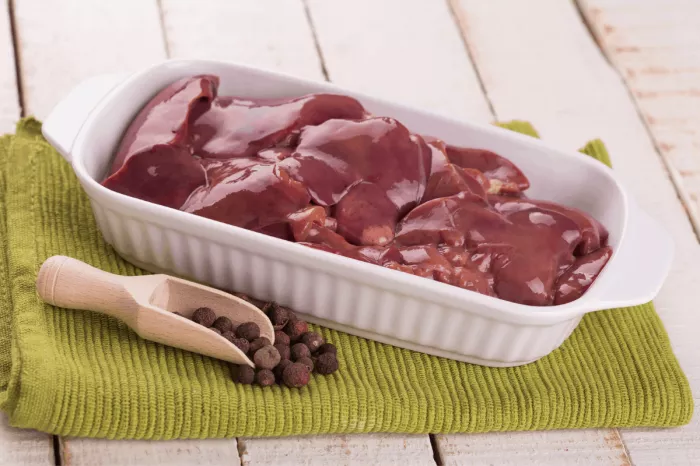Breastfeeding is a crucial time for both mothers and infants. A mother’s diet can impact her milk production and the nutrients passed to her baby. One food that often comes up in discussions is chicken liver. This article explores the benefits and risks of consuming chicken liver while breastfeeding.
Nutritional Benefits of Chicken Liver
Chicken liver is a rich source of essential nutrients. It is high in protein, vitamins, and minerals.
Rich in Iron
One of the standout features of chicken liver is its iron content. Iron is vital for both mothers and babies.
For mothers, iron helps maintain energy levels. It can also prevent anemia, a common condition during and after pregnancy.
For babies, iron is crucial for developing healthy blood and brain function.
High in Vitamin A
Chicken liver is also an excellent source of vitamin A. This vitamin plays a critical role in the immune system.
For breastfeeding mothers, sufficient vitamin A helps maintain overall health. For infants, vitamin A supports vision, skin health, and immune function.
Other Nutrients
Besides iron and vitamin A, chicken liver contains other important nutrients. These include:
- B vitamins (B12, B6, and folate)
- Zinc
- Phosphorus
These nutrients contribute to a well-rounded diet for breastfeeding mothers.
Risks of Eating Chicken Liver While Breastfeeding
While chicken liver has many benefits, there are also some risks to consider.
High in Cholesterol
Chicken liver is high in cholesterol.
Excess cholesterol can lead to health problems over time, including heart disease. Breastfeeding mothers should consume it in moderation.
Risk of Contaminants
Another concern is the potential for contaminants. Chicken liver can harbor harmful bacteria, such as Salmonella.
Improper cooking or handling can increase the risk of foodborne illness.
To minimize this risk, always cook chicken liver thoroughly. Avoid cross-contamination with other foods.
Vitamin A Overload
While vitamin A is essential, too much can be harmful.
Excessive vitamin A can lead to toxicity. This is especially important for breastfeeding mothers to consider.
Moderation is key when consuming foods high in vitamin A, like chicken liver.
How Much Chicken Liver Can You Safely Eat?
If you decide to eat chicken liver while breastfeeding, moderation is essential.
Recommended Servings
Health experts recommend limiting chicken liver intake to about 1-2 servings per week.
A serving is typically around 3 ounces (85 grams). This allows you to enjoy the benefits without risking excess cholesterol or vitamin A.
Balance with Other Foods
It is also important to balance chicken liver with other nutrient-rich foods.
Include a variety of fruits, vegetables, whole grains, and proteins in your diet. This ensures you and your baby receive a well-rounded array of nutrients.
Cooking Tips for Chicken Liver
How you prepare chicken liver can affect its safety and taste.
Thorough Cooking
Always cook chicken liver thoroughly to kill any harmful bacteria.
Cook until it reaches an internal temperature of at least 165°F (75°C).
Marinating and Seasoning
Chicken liver can have a strong flavor. Marinating it in herbs, spices, or acidic ingredients can enhance the taste.
Consider using garlic, lemon juice, or soy sauce for added flavor.
Pairing with Other Foods
Pairing chicken liver with other foods can also make it more enjoyable.
Serving it with whole grains or vegetables can create a balanced meal.
Listening to Your Body
Every breastfeeding mother’s body is different.
Monitor Your Baby
When introducing any new food, including chicken liver, monitor your baby for any reactions.
Look for signs of allergies or digestive issues. If you notice anything unusual, consult your healthcare provider.
Trust Your Instincts
If you feel uncertain about eating chicken liver, trust your instincts.
Consult with a healthcare professional or a nutritionist for personalized advice.
Conclusion
In summary, chicken liver can be a nutritious addition to a breastfeeding mother’s diet.
Its high iron and vitamin A content offer several benefits. However, moderation is crucial due to the potential risks associated with high cholesterol and contaminants.
By cooking it properly and balancing it with other foods, mothers can enjoy chicken liver safely while breastfeeding.
As with any dietary choice during this important time, listening to your body and your baby’s needs is essential. Always seek professional guidance if you have any concerns.
With a thoughtful approach, you can make informed decisions about your diet while providing the best nutrition for your child.
Related topics:


